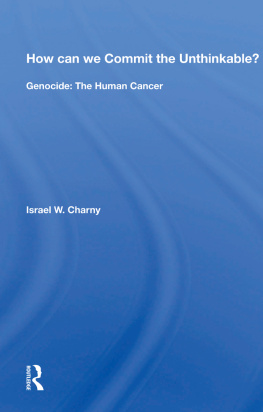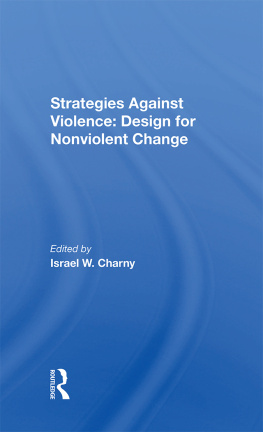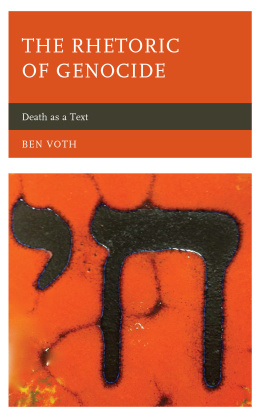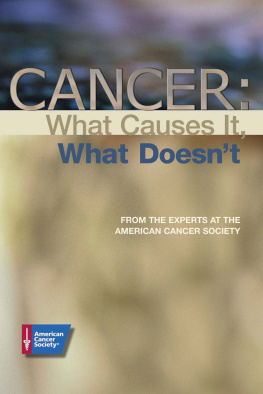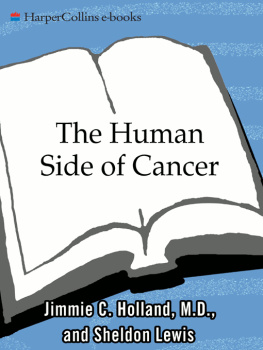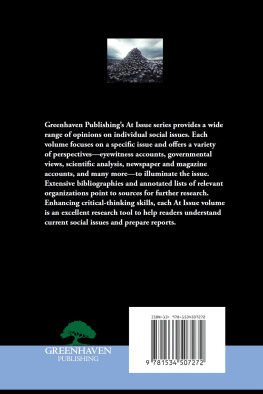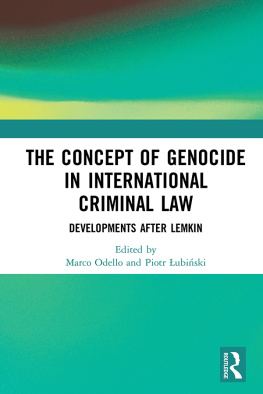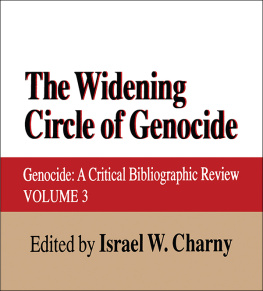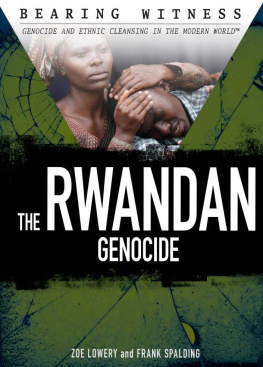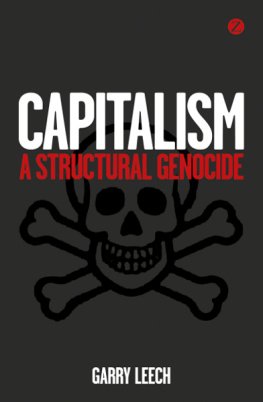Israel W Charny - How Can We Commit the Unthinkable?: Genocide: The Human Cancer
Here you can read online Israel W Charny - How Can We Commit the Unthinkable?: Genocide: The Human Cancer full text of the book (entire story) in english for free. Download pdf and epub, get meaning, cover and reviews about this ebook. year: 2019, publisher: Routledge, genre: Politics. Description of the work, (preface) as well as reviews are available. Best literature library LitArk.com created for fans of good reading and offers a wide selection of genres:
Romance novel
Science fiction
Adventure
Detective
Science
History
Home and family
Prose
Art
Politics
Computer
Non-fiction
Religion
Business
Children
Humor
Choose a favorite category and find really read worthwhile books. Enjoy immersion in the world of imagination, feel the emotions of the characters or learn something new for yourself, make an fascinating discovery.
- Book:How Can We Commit the Unthinkable?: Genocide: The Human Cancer
- Author:
- Publisher:Routledge
- Genre:
- Year:2019
- Rating:5 / 5
- Favourites:Add to favourites
- Your mark:
- 100
- 1
- 2
- 3
- 4
- 5
How Can We Commit the Unthinkable?: Genocide: The Human Cancer: summary, description and annotation
We offer to read an annotation, description, summary or preface (depends on what the author of the book "How Can We Commit the Unthinkable?: Genocide: The Human Cancer" wrote himself). If you haven't found the necessary information about the book — write in the comments, we will try to find it.
How Can We Commit the Unthinkable?: Genocide: The Human Cancer — read online for free the complete book (whole text) full work
Below is the text of the book, divided by pages. System saving the place of the last page read, allows you to conveniently read the book "How Can We Commit the Unthinkable?: Genocide: The Human Cancer" online for free, without having to search again every time where you left off. Put a bookmark, and you can go to the page where you finished reading at any time.
Font size:
Interval:
Bookmark:
Executive Director, International Conference on the Holocaust and Genocide
In Collaboration with Chanan Rapaport

52 Vanderbilt Avenue, New York, NY 10017
2 Park Square, Milton Park, Abingdon, Oxon OX14 4RN
Product or corporate names may be trademarks or registered trademarks, and are used only for identification and explanation without intent to infringe.
Charny, Israel W.
How can we commit the unthinkable?: Genocide, the human cancer.
Bibliography: p.
Includes index.
1. Genocide. 2. GenocidePsychological aspects. 3. GenocidePrevention. 4.
Holocaust, Jewish (1939-1945). I. Rapaport, Chanan. II. Title.
HV6542.C47 364.1'51 81-19784
ISBN 0-86531-358-X AACR2
- Part One
What Are the Origins of Human Destructiveness? - Part Two
When Does Man Commit Genocide? - Part Three
Why Can There Still Be Hope?
- Part One
What Are the Origins of Human Destructiveness? - Part Two
When Does Man Commit Genocide? - Part Three
Why Can There Still Be Hope?
- vi
- xvii
- xviii
Font size:
Interval:
Bookmark:
Similar books «How Can We Commit the Unthinkable?: Genocide: The Human Cancer»
Look at similar books to How Can We Commit the Unthinkable?: Genocide: The Human Cancer. We have selected literature similar in name and meaning in the hope of providing readers with more options to find new, interesting, not yet read works.
Discussion, reviews of the book How Can We Commit the Unthinkable?: Genocide: The Human Cancer and just readers' own opinions. Leave your comments, write what you think about the work, its meaning or the main characters. Specify what exactly you liked and what you didn't like, and why you think so.

